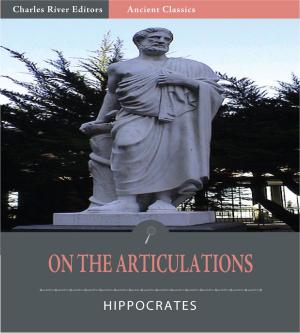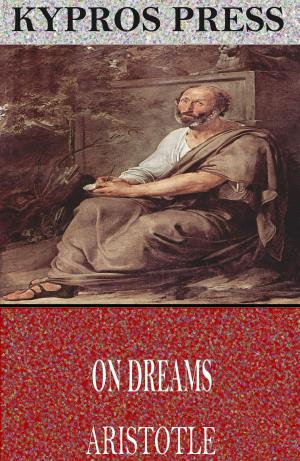The Ultimate Attila the Hun Collection
Nonfiction, History, Ancient History, Rome, Biography & Memoir, Historical| Author: | Charles River Editors, William Herbert, Jordanes | ISBN: | 9781475321500 |
| Publisher: | Charles River Editors | Publication: | January 28, 2013 |
| Imprint: | Language: | English |
| Author: | Charles River Editors, William Herbert, Jordanes |
| ISBN: | 9781475321500 |
| Publisher: | Charles River Editors |
| Publication: | January 28, 2013 |
| Imprint: | |
| Language: | English |
Includes:•Charles River Editors original biography of Attila the Hun•Attila, King of the Huns, and His Predecessors by William Herbert•Passages on Attila by Jordanes, from The Origin and Deeds of the GothsA luxurious meal, served on silver plate, had been made ready for us and the barbarian guests, but Attila ate nothing but meat on a wooden trencher. In everything else, too, he showed himself temperate; his cup was of wood, while to the guests were given goblets of gold and silver. His dress, too, was quite simple, affecting only to be clean. The sword he carried at his side, the latchets of his Scythian shoes, the bridle of his horse were not adorned, like those of the other Scythians, with gold or gems or anything costly. Priscus, History of BizantiumAttila, Emperor of the Hunnic Empire and thus most commonly known as Attila the Hun, is an idiosyncratic figure who has become more myth than man, not least because much of his life is shrouded in mystery. Perhaps the most famous barbarian in history, Attila was the lord of a vast empire spanning two continents, but he is best remembered for what he did not conquer. Though he seemingly had Rome at his mercy in 452, he ultimately decided not to sack the Eternal City, and a year later he had suffered a mysterious death. What is known about Attila came mostly from Priscus, a guest of his court who wrote several books about Attilas life in Greek. Unfortunately, much of that work was lost to history, but not before the ancient writer Jordanes relied on it to write his own overexaggerated account of Attilas life. And like their leader, the Huns themselves are an instantly recognizable name with mysterious origins; most of what is known about the Huns came from Chinese sources thousands of miles and an entire continent away from Italy. Naturally, the dearth of information and the passage of time have allowed myths and legends to fill in the most important details of Attilas life. Why did a man at war with the Roman Empire for so long decide not to sack Rome in 452? Did a meeting with Pope Leo the Great convince him to spare the capital of the Western half of the empire? Did a vision from St. Peter induce Attila to convert to Christianity? Was Attila murdered by his new bride? The lack of answers has allowed Atilla to become the face of ancient barbarity and the embodiment of the furious nomadic conqueror. The Ultimate Attila the Hun Collection discusses the facts, myths, and legends surrounding the life of Attila, examining the historical record and the way in which his legacy has been shaped, all in an attempt to separate fact from fiction. This collection includes two biographies and an ancient account about Attila written by Jordanes. This collection also includes pictures and a bibliography.
Includes:•Charles River Editors original biography of Attila the Hun•Attila, King of the Huns, and His Predecessors by William Herbert•Passages on Attila by Jordanes, from The Origin and Deeds of the GothsA luxurious meal, served on silver plate, had been made ready for us and the barbarian guests, but Attila ate nothing but meat on a wooden trencher. In everything else, too, he showed himself temperate; his cup was of wood, while to the guests were given goblets of gold and silver. His dress, too, was quite simple, affecting only to be clean. The sword he carried at his side, the latchets of his Scythian shoes, the bridle of his horse were not adorned, like those of the other Scythians, with gold or gems or anything costly. Priscus, History of BizantiumAttila, Emperor of the Hunnic Empire and thus most commonly known as Attila the Hun, is an idiosyncratic figure who has become more myth than man, not least because much of his life is shrouded in mystery. Perhaps the most famous barbarian in history, Attila was the lord of a vast empire spanning two continents, but he is best remembered for what he did not conquer. Though he seemingly had Rome at his mercy in 452, he ultimately decided not to sack the Eternal City, and a year later he had suffered a mysterious death. What is known about Attila came mostly from Priscus, a guest of his court who wrote several books about Attilas life in Greek. Unfortunately, much of that work was lost to history, but not before the ancient writer Jordanes relied on it to write his own overexaggerated account of Attilas life. And like their leader, the Huns themselves are an instantly recognizable name with mysterious origins; most of what is known about the Huns came from Chinese sources thousands of miles and an entire continent away from Italy. Naturally, the dearth of information and the passage of time have allowed myths and legends to fill in the most important details of Attilas life. Why did a man at war with the Roman Empire for so long decide not to sack Rome in 452? Did a meeting with Pope Leo the Great convince him to spare the capital of the Western half of the empire? Did a vision from St. Peter induce Attila to convert to Christianity? Was Attila murdered by his new bride? The lack of answers has allowed Atilla to become the face of ancient barbarity and the embodiment of the furious nomadic conqueror. The Ultimate Attila the Hun Collection discusses the facts, myths, and legends surrounding the life of Attila, examining the historical record and the way in which his legacy has been shaped, all in an attempt to separate fact from fiction. This collection includes two biographies and an ancient account about Attila written by Jordanes. This collection also includes pictures and a bibliography.















